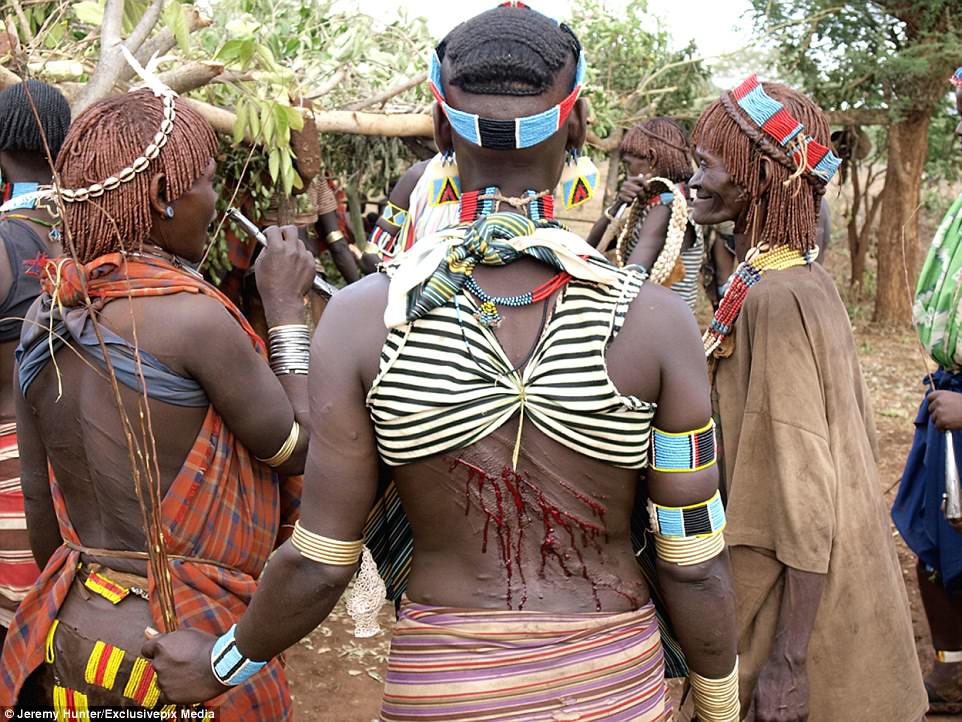Two different tribes. They perform opposite customary rites in marriage. One culture tests bravery among men, but the other cherishes fidelity among women. In one, a man submits himself for beating, but in another, a woman entices a man to cane her. One world, two countries. Yet, the same gathering, same mission all aimed at fostering a successful marriage among the people.
Among the Fulani in Nigeria, “sharo” is a fulani game that involves two suitors flogging one another publicly to win a maiden’s hand in marriage.
The nomadic Fulani are known for their hard work, discipline and courage. It is, generally, believed that this process will help test the strength of the potential groom to prove his worth in terms of strength, resilience and endurance.
In ‘an act of bravery’ the groom is expected not to wince, cry or show he is in pain, while asking for more strokes.
The challenger will flog his opponent until he begs him to stop. A referee is provided to keep watch on the strokes so as to prevent serious and life-threatening injuries like blindness.
The winner of the flogging competition has a right to marry any girl he chooses, or even four girls if he can prove his ability to handle all of them.
Not so with the Hamar people of the Omo Valley in Ethiopia made up of more than 46,532 people. These pastoral and polygamous people are popular for their traditional ‘jumping of bulls’. This ceremony often attracts neighbours and people foreign to their culture to witness it.
As the name implies, Hamar men are made to jump over 15 to 30 bulls naked as a rite into becoming a Maza. Mazas are men who have successfully passed through this rite and allowed to marry.
Failure to succeed means he will receive whips from the women and be unable to marry. In the Hamar culture, women entice the Mazas to beat them with whips and canes on their backs sometimes against their wish. With blood seeping out from their backs, they tell the men to continue whipping them. The man does not need to explain why he is beating them.
These whips, though painful, show that the women are dedicated to the men. The newly initiated Maza relatives are not left out. The number of scars on the back also shows the new Maza who loves him best. They take in the beating on the condition that he remembers them when they face difficulties.
When this is complete, they go into the Evangadi (night dancing) before the families of the new Maza announce their first wives.
Their traditional clothes are made of goatskin. They also adorn their bodies by cutting their skin and adding ash and charcoal to the cuts.
The men and the women do not have gender roles when taking care of their cattle. These cattle are used to define their wealth status and are used to also used to pay the woman’s bride price.
This is the culture paradox of two different tribes from two different countries.

